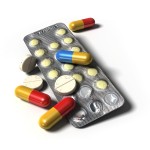Big Pharma and Access to Medicines
 Having written critically about a decision made by Doctors Without Borders /Médecins Sans Frontières (MSF) to reject a donation of vaccines by Pfizer, Inc., I am grateful for a new report which ranks research-based pharmaceutical companies on a number of measurements of how they make medicines available to patients in low-income countries.
Having written critically about a decision made by Doctors Without Borders /Médecins Sans Frontières (MSF) to reject a donation of vaccines by Pfizer, Inc., I am grateful for a new report which ranks research-based pharmaceutical companies on a number of measurements of how they make medicines available to patients in low-income countries.
Jointly funded by the Bill & Melinda Gates Foundation and British and Dutch taxpayers, the Access to Medicine Index ranks 20 large drug makers. It is a very thorough report:
The Access to Medicine Index analyses the top 20 research-based pharmaceutical companies on how they make medicines, vaccines and diagnostics more accessible in low- and middle-income countries. It highlights best and innovative practices, and areas where progress has been made and where action is still required.
The 2016 Index used a framework of 83 metrics to measure company performances relating to 51 high-burden diseases in 107 countries.
One measure where there has been little recent progress is affordability, as measured by pricing arrangements that take into account different abilities to pay in different countries. I find this odd, because any drug company maximizes profits by engaging in fine price differentiation. This means charging a low price in low-income countries, rather than shunning the market.
The only reason for a drug marker not to engage in this practice is concern that the drugs will be diverted to higher-income countries, cannibalizing profits. Thus, the drug maker has to be confident the distribution system in the low-income country will not suffer “leakage.”
The report also analyzes research & development into diseases for which therapies are not commercially profitable. It notes:
The majority (67%) of the R&D projects for high-priority, low-incentive products are being conducted in partnership, signalling that collaborative models are effective at engaging companies in R&D aimed at addressing priority product gaps. Three quarters of partnerships for high-priority, low-incentive products involve companies partnering with public, non-governmental and/or non-profit organisations.
I find it very encouraging that philanthropic enterprises (such as the Bill and Melinda Gates Foundation) are entering these partnerships with for-profit drug makers. It is a far healthier development than the old-fashioned approach of just beating up drug makers for their greed.

